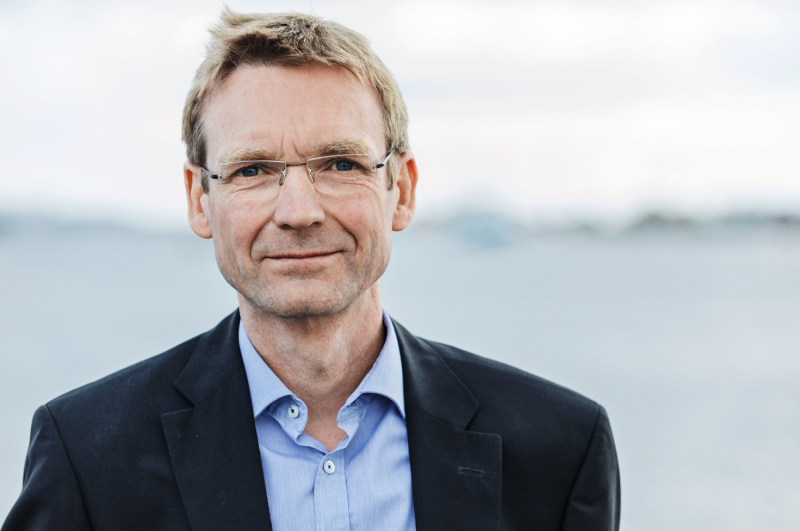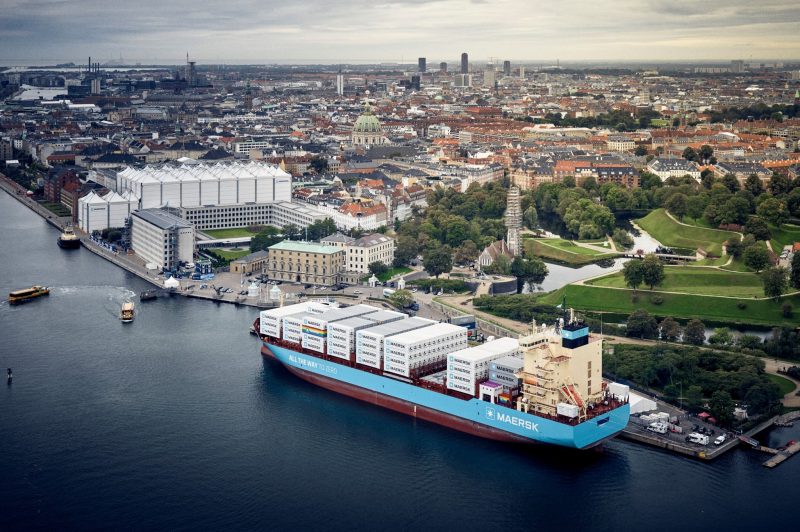The shipping realm is setting sail towards a greener horizon, with a resolute pledge to slash its worldwide carbon footprint by 2050. This audacious endeavor demands unwavering commitment from industry titans, as well as a turbocharged acceleration of the energy transition.
The Mærsk Mc-Kinney Møller Center for Zero Carbon Shipping, a cutting-edge research center located in Copenhagen and comprising key industry stakeholders, is positioned to spearhead efforts in decarbonizing the shipping sector and shaping the future of environmentally sustainable maritime transportation. This initiative will be presented and deliberated upon at the 28th Climate Conference of Parties in the United Arab Emirates, Dubai.

Mr. Torben Norgaard, the Chief Technology Officer of Energy and Fuels from Mærsk Mc-Kinney Møller Center for Zero Carbon Shipping, emphasized during the recent interview with the UAE Press Delegation the tangible progress being made in the maritime sector, stating, “We’ve moved from hypothetical discussions to real-world business operations, investments, and mobilization. The global shipping industry is no longer confined to theory; it’s an active force for change.”
Speeding up the journey to decarbonization can be achieved through the establishment of ‘green corridors’—dedicated trade routes connecting major port hubs that actively promote and embrace zero-emission solutions on a global scale. Currently, the center is engaged in projects with the key players spanning Chile, Trans-Pacific routes, Europe, the Mediterranean, Austria, and New Zealand.
Mr. Norgaard also addressed the challenge of sourcing low-emission fuels, pointing out that the maritime industry consumes 5% of global oil production, making it essential to invest in sustainable alternatives. He highlighted four potential energy carriers and said, “The maritime industry’s agility allows it to embrace a variety of low-emission fuels, including bio-oils, methane, methanol, and ammonia, each with its unique opportunities and challenges.”

“The journey ahead of us is going to require a lot of work,” Mr. Norgaard acknowledged. “To realize industry-wide decarbonization and to reach the targets set by the Paris Agreement, we must enable all alternative fuel pathways. No alternative fuel can do it alone.”
Despite these challenges, Mr. Norgaard stressed the industry’s growing commitment to change, with regulatory standards and driving investments in sustainable fuels and technologies. He pointed out that the maritime sector is preparing for regulations such as a 2% fuel standard by 2026 and 6% by 2030, with further increases in uptake expected.
“The opportunity to drive the transition and bridge the gap is growing as investments pour into the ships. The market is ready for developers to play a key role in driving this transition,” he added.
Mr. Norgaard concluded, “Our mission is clear: to achieve the sustainable decarbonization of the maritime industry by 2050.” The upcoming COP28 presents a crucial platform, enabling the Mærsk Mc-Kinney Møller Center for Zero Carbon Shipping to contribute pivotal insights and share expertise to accelerate the global transition towards a net-zero future.
Nevertheless, a significant step in the energy transition has been taken with the launch of the first-ever container vessel powered by green methanol. This marks a momentous milestone in the evolution of the shipping industry.






















